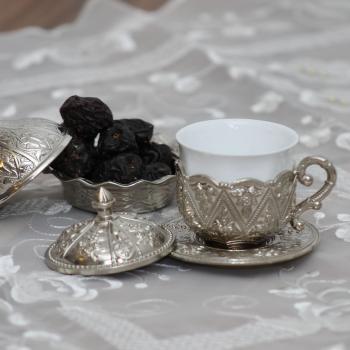The story of Jospeh as it appears in the Qur’an and the Bible are compared here, noting the similarities and the differences. Joseph (or Yusuf, as he is known in the Qur’an) was the eleventh son of Jacob and the only prophet among his twelve sons, according to the Islamic traditions. He is one of the most highly regarded prophets in Islam, Christianity, and Judaism.
This post provides a brief overview with similarities and variations in the story of Joseph as told in the Qur’an and the Bible.
The Qur’an talks about Joseph along with other revered prophets in the following verse:
“We gave him (meaning Abraham) Isaac and Jacob: all (three) guided: and before him, We guided Noah, and among his [Abraham’s] progeny, David, Solomon, Job, Joseph, Moses, and Aaron: thus do We reward those who do good.” 6:84
Though he is mentioned in many chapters in the Qur’an, the story of Joseph is told in a chapter named after him (Surah Yusuf), in a rare continuous stream that is stunningly beautiful, formed, and heart-felt. Unlike many other chapters in the Qur’an named after other Prophets, the chapter “Joseph” is almost entirely dedicated to his story, which in large part is similar to the story as told in the book of Genesis. According to the Qur’an and the Bible, Joseph is a righteous person, in the footsteps of his forefathers Abraham, Isaac, and Jacob, and believes in One God and submits to His will. Jacob had twelve sons. Two of them, Joseph and Benjamin, were from Jacob’s favorite wife, Rachel (Rachel and Benjamin are not mentioned by name in the Qur’an). Because of this, both the Qur’an and the Bible narrate how his other brothers grew jealous of him.
Surah Yusuf of the Quran almost immediately starts by a proclamation about a story to be told by the Almighty.
We relate to you the best of stories through this Qur’an by Our revelation to you (O Muhammad), though before this you were one of those who did not know. The Qur’an 12:3
Yusuf Ali has translated the underlined word as “most beautiful” for the Arabic word “Ahsan,” used in the verse. This beautiful story starts with a young Joseph telling his father Jacob about a dream he had, and ends with the reunion of Joseph with his father, to complete the interpretation of the dream. The story that starts in verse 4 ends with a prayer by Joseph in verse 101.
My Lord! You have given me of the kingdom and taught me of the interpretation of sayings: Originator of the heavens and the earth! You are my guardian in this world and the hereafter; make me die a Muslim [submitter] and join me with the good. The Qur’an 12:101
The last part of the verse is in line with many such verses in the Qur’an, where many prophets, from Abraham to Isaac and Jacob and others, have prayed and identified themselves as “Muslims,” or submitters. As noted thought this book, various scholars have translated the Arabic word “Muslimoon” as either Muslims or as Submitters.
Chapter 12 (“Joseph”) has one hundred and eleven verses. The actual story is told in verses from 12:4 to 12:101. There is an intro in verse 12:3: “We narrate to you the best of the stories,” with a short epilogue after the story in verse 12:102: “This is of the announcements relating to the unseen (which) We reveal to you, and you were not with them when they resolved upon their affair, and they were devising plans.” A reading of the entire chapter is highly recommended.
Biblical Accounts of the Story of Joseph
Joseph’s life story is told in great detail starting in chapter 37 of Genesis, with his father Jacob settling in the land of Canaan. It ends with Joseph’s death at age of 110 years, in chapter 50, which is also the end of Genesis.
Similarities:
By and large, the story of Joseph is very similar as told in the Bible and the Qur’an. They both hold Joseph in high esteem, mention his unique power to correctly interpret dreams, and portray him as the most beloved son of Jacob. The brothers are jealous and sell him to a caravan, Joseph ends up in Egypt where the chief’s wife tries to seduce him, and he resists. He is put in jail, where he uses his ability as dream interpreter to the inmates, and this skill gets him out of prison when he correctly interprets the king’s dreams. The accounts of the two dreams the king had are the same in the Qur’an and the Bible (the seven fat cows eating seven thin ones, and the seven green ears of corn with seven dry ones).
He eventually is pardoned and rises up in the ranks quickly and holds a high post in the Egyptian kingdom. His brothers visit Egypt and don’t recognize him. He holds his real brother ransom, sends his shirt back to his father, Jacob, who had been missing him dearly, and eventually leads to a happy family reunion. Joseph forgives his brothers. Both the Qur’an and the Bible tell a continuous stream of events, which is common in the Bible but is a unique feature for the Qur’an. The narration in the Bible is long even from biblical standards.
Some variations do exist in the story as told by the Qur’an and the Bible:
- The Qur’an uses the specific term “Malik” (with a short “a”), meaning “the king” or “the ruler,” to describe the ruler in Egypt. The Quran uses the word “Pharaoh” (Firon in Arabic) for the king of Egypt during the times of Moses and never used this term to describe the Egyptian ruler in the story of Joseph (or Abraham). Genesis frequently refers to the Egyptian ruler as Pharaoh in Joseph’s story. Though modern writers have used the term “Pharaoh” to describe all rulers of ancient Egypt, according to historical sources, the title Pharaoh for the rulers of Egypt was not used until the New Kingdom period of ancient Egypt (comprised of the eighteenth through the twentieth Egyptian dynasties), which started in the sixteenth century BCE.[1] By the time of the rule of Thutmose III in 1479 BCE, it became a common way of addressing the king. Until this time, the term “Pharaoh” was used to describe the royal palace. According to timelines by biblical scholars, Joseph died in the year 1805 BCE, well before the title was in use to indicate the Egyptian ruler. In fact, Genesis uses the title Pharaoh as early as the Abrahamic period, when Abraham took Sarah to Egypt.
Pharaoh’s officials saw her and praised her to Pharaoh; and the woman was taken into Pharaoh’s house. Genesis 12:15
And in the story of Joseph, Genesis once again calls the king of Egypt a Pharaoh:
Meanwhile, the Midianites sold him in Egypt to Potiphar, Pharaoh’s officer, the captain of the bodyguard. Genesis 37:36
- The Quran refers to the man who took Joseph to his house by the generic word, “chief” (Aziz). True to its tradition of being specific, the Bible mentions his name as Potiphar, the captain of the guards of the Pharaoh, as noted in the verse above.
- In the Bible, when the advancing wife tears Joseph’s shirt, Potiphar believes the wife’s version and imprisons Joseph. The wife tells the story and blames Joseph instead for the advances when Potiphar came home later that day. In the Qur’an, the chief is described as being at the door, when Joseph is trying to flee, and he initially believes Joseph’s defense for his innocence.
- The story about the lady friends cutting their fingers is not described in the Bible.
- The Bible names Benjamin as Joseph’s only real brother. The Qur’an does not name any of his brothers.
The post is adapted from my book The Quran: With or Against the Bible?, Chapter 15: ‘Abraham: The Father of Monotheistic Religions’.
[1] Aidan Dodson and Dyan Hilton, The Complete Royal Families of Ancient Egypt. Thames and Hudson. 2004.














